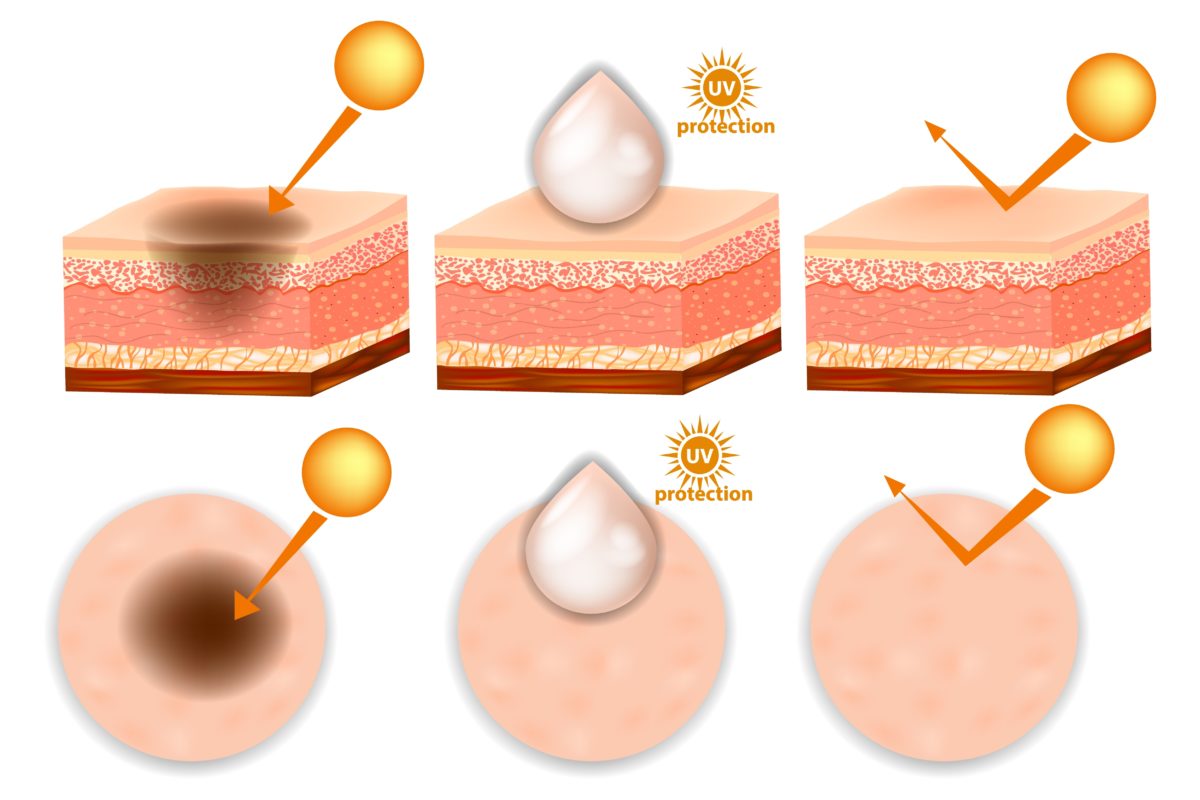Sun Exposure

Is Sun Exposure A Cause of Melanoma?
Sun exposure (ultraviolet, or UV, radiation) is the main risk factor for melanoma. Cumulative sun exposure and episodes of severe sunburns increase the risk of developing melanoma. Cumulative sun exposure is also a risk factor for basal cell carcinoma and squamous cell carcinoma, two other forms of skin cancer. Exposure to sunlight during the winter months puts you at the same risk as exposure during the summertime because UVA and UVB rays are present in daylight, regardless of the season.
Risk Factors for Melanoma:
Anyone can develop melanoma, but those at greatest risk are people who have fair or freckled skin that burns easily, light-colored eyes, and blond or red hair. Darker skinned individuals have a lower risk of developing skin cancer, but the risk is still present.
How Sun Damages Skin:
Besides increasing your risk for melanoma and other skin cancers, the sun’s UV rays also damage the fibers in the skin called elastin. When these fibers break down, the skin loses its elasticity—it sags. Because the damage occurs over time through cumulative exposure, the skin loses its ability to repair itself.
Exposure to the Sun Causes:
- pre-cancerous skin lesions, called actinic keratosis
- cancerous lesions, including basal cell carcinoma, squamous cell carcinoma and melanoma
- wrinkles
- benign tumors
- skin discoloration
- telangiectasias—when broken or damaged small blood vessels show through the skin
- elastosis—when the elastin of the skin is damaged
Is Tanning Bad?
Yes. While some people think a tan looks healthy, the opposite is actually true. A tan develops when the skin tries to protect itself from UV rays. Your skin produces pigment in an attempt to shield itself from UV exposure. The more pigment that is produced, the darker the skin becomes. A tan is objective evidence that damage to your skin has occurred. Cumulative exposure to UV rays can cause skin cancers including melanoma, basal cell carcinoma, and squamous cell carcinoma. Every time you tan, you increase your risk of developing skin cancer.


